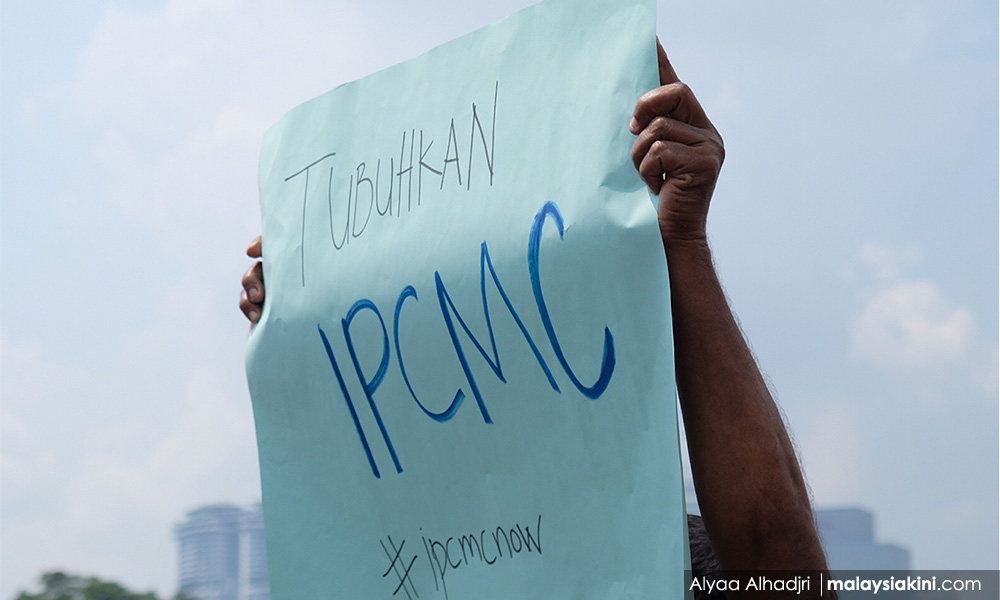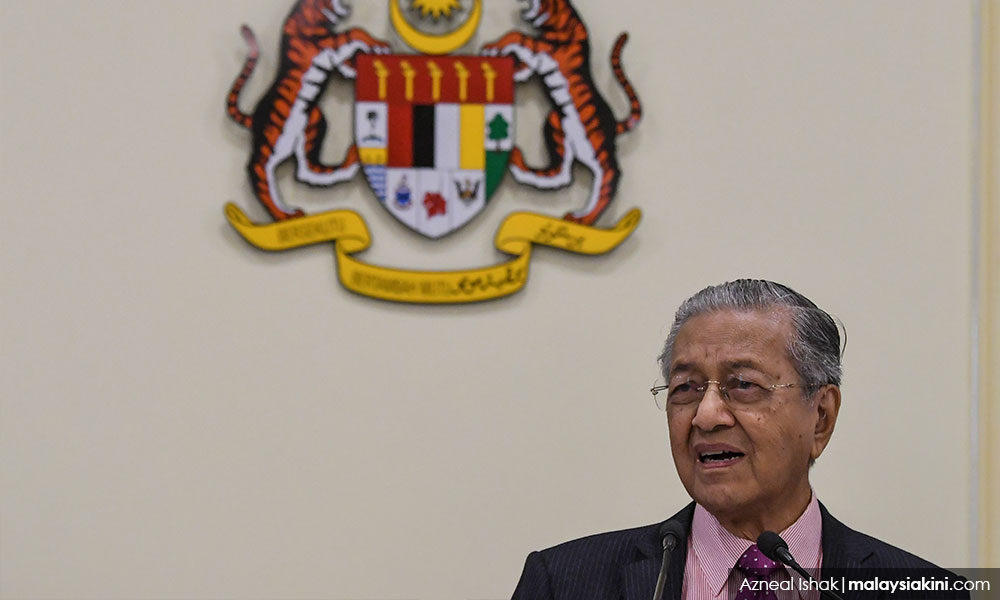
There are many holes in the Independent Police Complaints of Misconduct Commission Bill 2019 which deals with police misconduct and which was tabled for first reading during the last session of Parliament and will be debated in the forthcoming session of Parliament later this year.
Even the name has undergone a subtle but very profound change from the original envisaged by the Dzaiddin Royal Commission of 2005 which was the Independent Police Complaints and Misconduct Commission (IPCMC). The word “and” has been substituted with “of”.
This means the new commission deals with “complaints of misconduct” instead of “complaints and misconduct” which is a much wider interpretation of the scope of the IPCMC. This looks like a deliberate attempt to paper over the much-reduced role of the IPCMC in the proposed new act.
The bill allows only for the investigation of matters which relate to misconduct while much more serious criminal activities involving corruption and others including grievous hurt and murder are to be referred to other authorities such as the MACC and the police for investigation.
Commission members will effectively be appointed by the prime minister. Any intention, if there was one, to defuse prime ministerial powers and put the IPCMC above the already extensive powers of the prime minister, will not happen.
Not only are commissioners appointed by the prime minister, they don’t even have security of tenure and can be removed at any time by the king (read prime minister on whose advice the king acts) nullifying any semblance of independence the commission may have while continuing to put too much power in the hands of the prime minister.
These two provisions alone will make the IPCMC Act a lame duck and the IPCMC itself a toothless tiger with the police and MACC investigating more serious offences other than misconduct.
Section 6 (1) of the bill (which can be downloaded here) says: “The Yang Di-Pertuan Agong shall, on the advice of the prime minister, appoint not more than ten members of the commission, of whom there shall be a chairperson and a deputy chairperson, for such period and on such terms as may be specified in the instrument of appointment.”
And Section 7(4) adds: The appointment of a member of the commission may at any time be revoked by the Yang Di-Pertuan Agong.

Section 22 (1) sets out the powers of IPCMC: “The commission may receive or deal with complaints against any member of the police force referred to it, on the following misconduct: (a) any act or inaction which is contrary to any written law; (b) non-compliance of rules and standard operating procedure of the police; (c) any act or inaction which is unreasonable, unjust, oppressive or improperly discriminatory; (d) any act or inaction which is committed on improper motives, irrelevant grounds or irrelevant consideration; (e) omission to provide grounds in cases where grounds should have been provided; and (f) the commission of any criminal offence by a member of the police force."
But the classification of complaints under Section 25 severely limits it: “The classification of complaints shall be as follows: (a) where the complaint involves any offence under Part IV of the Malaysian Anti-Corruption Act 2009 [Act 694], the complaint shall be referred to the Malaysian Anti-Corruption Commission; (b) where the complaint involves any criminal offence under any other written law, the complaint shall be referred to the relevant authority; (c) where the complaint involves any misconduct mentioned in section 22, the complaint shall be referred to any officer of the commission for investigation."
From this, it is clear that for serious offences such as deaths in custody, grievous hurt etc, it will be the police who will be investigating the police - no different from current procedures while for corruption cases it will be the MACC, the same procedure as now.
While corruption and other serious offences can be referred to the MACC or the police or any other authority as the case may be, there is no provision in the bill to compel these authorities to investigate or any measure to ensure that the investigations by other authorities are properly and fairly conducted.
The IPCMC can only investigate and provide penalties for other offences under the act. These penalties are: (a) warning; (b) fine; (c) forfeiture of emoluments; (d) deferments of salary movements; (e) reduction of salary; (f) reduction in rank; or (g) dismissal.
Even so, Section 45 of the bill ensures that no prosecution can be made without the consent of the attorney-general: “No prosecution in respect of any offence under this Act shall be instituted except by or with the written consent of the public prosecutor.”
The bill further limits criticism against the commission under Section 35. “(1) A person who commits an act of contempt against any member of the commission commits an offence and shall, on conviction, be liable to a fine not exceeding ten thousand ringgit or to imprisonment for a term not exceeding two years or to both. (2) For the purpose of this section, an “act of contempt” means - (a) any act of disrespect or any insult or any threat to any member of the commission at any time and place on account of him proceeding in his capacity as a member of the commission; or (b) any act other than that provided in paragraph (a) that, if the commission was a court of law having the power to commit for contempt, would be contempt of that court.”

The term “any act of disrespect or any insult” is wide-ranging enough for any criticism of the commission to be subject to investigation and charges.
Thus the proposed new IPCMC will be very much a toothless tiger. First, its members are appointed effectively by the prime minister (on advice to the king) and can be removed at any time by the same process, denying security of tenure and hence independence.
This is in direct contradiction to promises made by Pakatan Harapan that important appointments will be made via a parliamentary select committee formed for the purpose. Thus the basic reasons for the rise of the previous kleptocratic government - too much power concentrated in the hands of the prime minister - have not been addressed at all.
Second, the bill does not provide for IPCMC oversight over important investigations such as corruption (referred to MACC) and death and grievous hurt in custody (ironically referred back to the police who would have been responsible for it in the first place) with no oversight process by the IPCMC.
If the IPCMC is at all to be independent and effective, they should be appointed by a parliamentary select committee and given security of tenure. They cannot be allowed to be removed mid-term by the executive and thereby stopped from doing their duty.
To be effective, they must be given oversight authority over all investigations by the police so that the police do not investigate major transgressions unfairly or even quash the investigations. As it stands, they can easily do that.
It is a matter of extreme and great regret that the Harapan government has terribly botched up its first major attempt at legal reform to improve transparency, accountability and integrity within a key enforcement agency - the police. It’s a surrender to the police no less.
P GUNASEGARAM says accountability starts with the top through the separation of powers and independence of the investigation and prosecuting agencies, none of which has been addressed through legal reforms so far. - Mkini



No comments:
Post a Comment
Note: Only a member of this blog may post a comment.